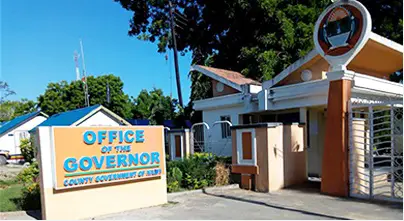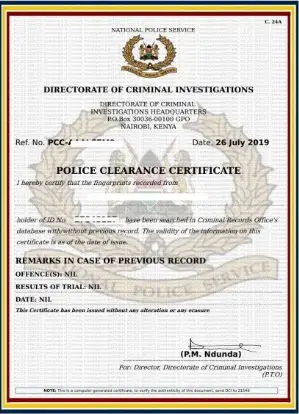Driving a motor vehicle in Kenya is a privilege that comes with responsibilities and certain requirements. The Kenyan government has established a system of licensing that categorizes drivers based on the type of vehicles they are allowed to operate and their level of experience.
One of these categories is Class DE, which allows individuals to operate passenger vehicles coupled to trailers with a permissible maximum mass exceeding 750kgs.
In this article, we will delve into the details of a Class DE driving license in Kenya, including its vehicle description, additional categories it enables, and the requirements for obtaining one.
License Category
The Class DE driving license in Kenya falls under the passenger vehicle category.
This means that individuals holding this license are authorized to drive passenger vehicles, typically automobiles designed to carry passengers, with the added capability of towing a trailer with a permissible maximum mass that exceeds 750 kilograms.
Description of Vehicles to Operate with Class DE License
Drivers with a Class DE license are allowed to operate motor vehicles of category D coupled to a trailer whose permissible maximum mass exceeds 750kgs.
This category typically encompasses a wide range of vehicles, including but not limited to SUVs, vans, and minibusses that are commonly used for passenger transport.
The ability to couple these vehicles with a trailer adds flexibility for transporting goods and materials, making this license category versatile and useful for various purposes.
Additional Categories to Operate with Class DE License
In addition to the primary Class DE license, holders of this category are also eligible to operate vehicles falling under the following categories: B1, B2, D1, D2, D3, and D4. These additional categories extend the range of vehicles a Class DE license holder can operate, further enhancing the versatility and utility of this license class.
- B1: This category allows drivers to operate light vehicles that have automatic transmissions.
- B2: The B2 category extends the scope to include light vehicles that can have manual transmission.
- D1: Category D1 vehicles are vans with a maximum of 14 passengers.
- D2: Category D2 vehicles are minibuses with seating capacity of 14 to 33 passengers
- D3: Category D3 vehicles are large buses with a seating capacity of 33 or more passengers
- D4: Category D4 vehicles are large articulated buses
Requirements for Obtaining a Class DE License in Kenya
Obtaining a Class DE license in Kenya comes with specific requirements to ensure that individuals are competent and responsible drivers for the vehicles they are authorized to operate.
Here are the key requirements:
Age and Experience
- Minimum Age: Applicants must be at least 30 years old to be eligible for a Class DE license. This age requirement reflects the level of responsibility and experience expected of individuals who will be operating passenger vehicles with trailers.
- Maximum Age: The maximum age allowed for Class DE license applicants is 65 years. This upper age limit is in line with ensuring that drivers maintain their physical and mental fitness to operate vehicles safely.
- Experience: Applicants must have a minimum of 3 years of driving experience in category D3 vehicles. This prerequisite ensures that Class DE license holders have prior experience with passenger vehicles, setting a foundation for responsible driving with trailers.
Training and Retesting
To obtain a Class DE license, applicants are required to undergo specialized training and pass a rigorous examination.
This training typically covers aspects related to safely operating passenger vehicles coupled with trailers, including trailer coupling and uncoupling, trailer stability, and handling.
The examination evaluates the applicant’s theoretical knowledge and practical skills in these areas.
Conclusion
The Class DE driving license in Kenya is a valuable credential that enables individuals to operate passenger vehicles coupled with trailers exceeding 750kgs in permissible maximum mass.
This license category offers versatility by allowing drivers to operate a range of vehicles, and it is accompanied by specific age and experience requirements to ensure responsible and safe driving practices.
Aspiring Class DE license holders must be prepared to undergo specialized training and examination, which ensures they have the necessary skills and knowledge to operate these vehicles safely and responsibly.
In Kenya, obtaining a Class DE license is not just about acquiring a legal document but also about upholding a commitment to road safety and responsible driving.



